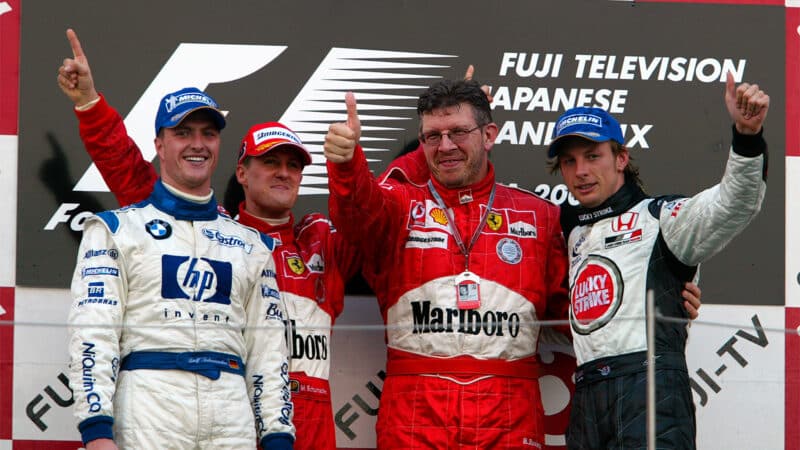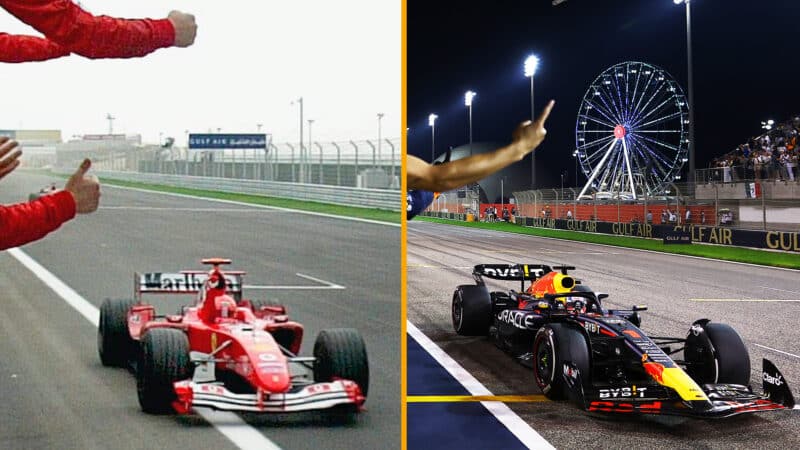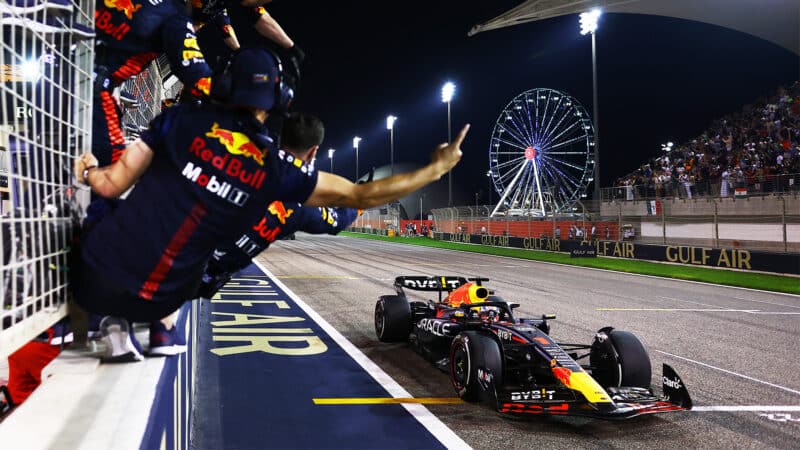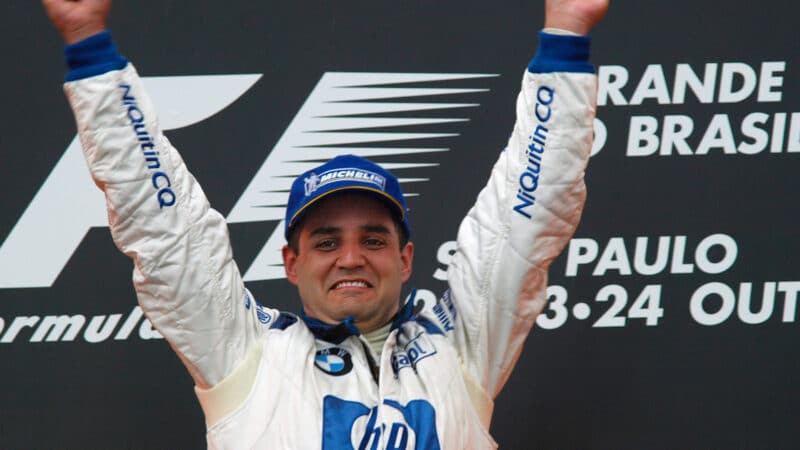The brightest story of the season was Jenson Button’s 10 podiums for BAR, reviving his career and placing him back within the top hierarchy of F1’s stars. Yet even that tale had more than one dark side. Firstly, while Button’s consistency was admirable, he never really looked like winning a race such was the Ferrari superiority. Shades of Lando Norris at McLaren last year. Both Brits, both winless, both so near… and yet so far.
Secondly, having just delivered his standout performance of the year in Germany, Button triggered a distracting storm. Or at least his management team did.
At Hockenheim, he’d started 13th thanks to a 10-place grid penalty for a Honda engine change, but stormed back to finish a fine second. Then in early August it was announced Button had signed for Williams for 2005 – just a few days after BAR thought it had triggered its option on his services for the next year. Button seemed taken aback at how hard his current team chief David Richards fought back. The case was referred to F1’s contracts recognition board, which eventually found in favour of BAR – so Button was blocked from rejoining the team at which his F1 career had begun in 2000. So he signed to join it instead in 2006 – but then changed his mind when Williams lost its BMW engine supply!
He’s always said the millions he was forced to personally spend to rip up that Williams deal was worth every cent. True enough. In 2006, as Williams dropped into the relative wilderness from which it has since only occasionally escaped, he became a grand prix winner at what was now Honda – which became Brawn GP in 2009 and made Button a world champion. What a remarkable chain of events.

Button (far right) celebrates 10th podium finish of the 2004 F1 season — a career rejuvenated
In that context, perhaps Norris was right after all to commit himself so early to remaining at McLaren – whatever may be this year. He’s saved himself a lot of unpleasant distraction when his focus needs to be on those 24 races.
But what about this for a potential parallel? At the end of 2004, no one would have predicted Schumacher had just claimed his final crown. Or that a rule change banning mid-race strategic tyre changes would derail Bridgestone and Ferrari’s bespoke supply of rubber so dramatically in 2005. It was the beginning of the end for what was then F1’s greatest super-team as Fernando Alonso and Renault undercut the reds not just once, but twice. Such a fall seemed inconceivable. Yet it happened, and relatively rapidly.
Nothing ever lasts for ever, certainly not in F1, and nothing can ever be taken for granted, even for the greatest teams that look unbeatable. Adrian Newey has been around the block long enough to know that, which is precisely why he and his team of crack engineers have worked so hard to avoid complacency with their new RB20.
As for the allegations made against Horner, it’s a reminder how vulnerable even the most powerful people can be. You just never know what’s coming next, and it’s that tension of the unknown around the next corner that keeps us hooked, even in the midst of record-breaking one-driver domination – just as it did 20 years ago.



